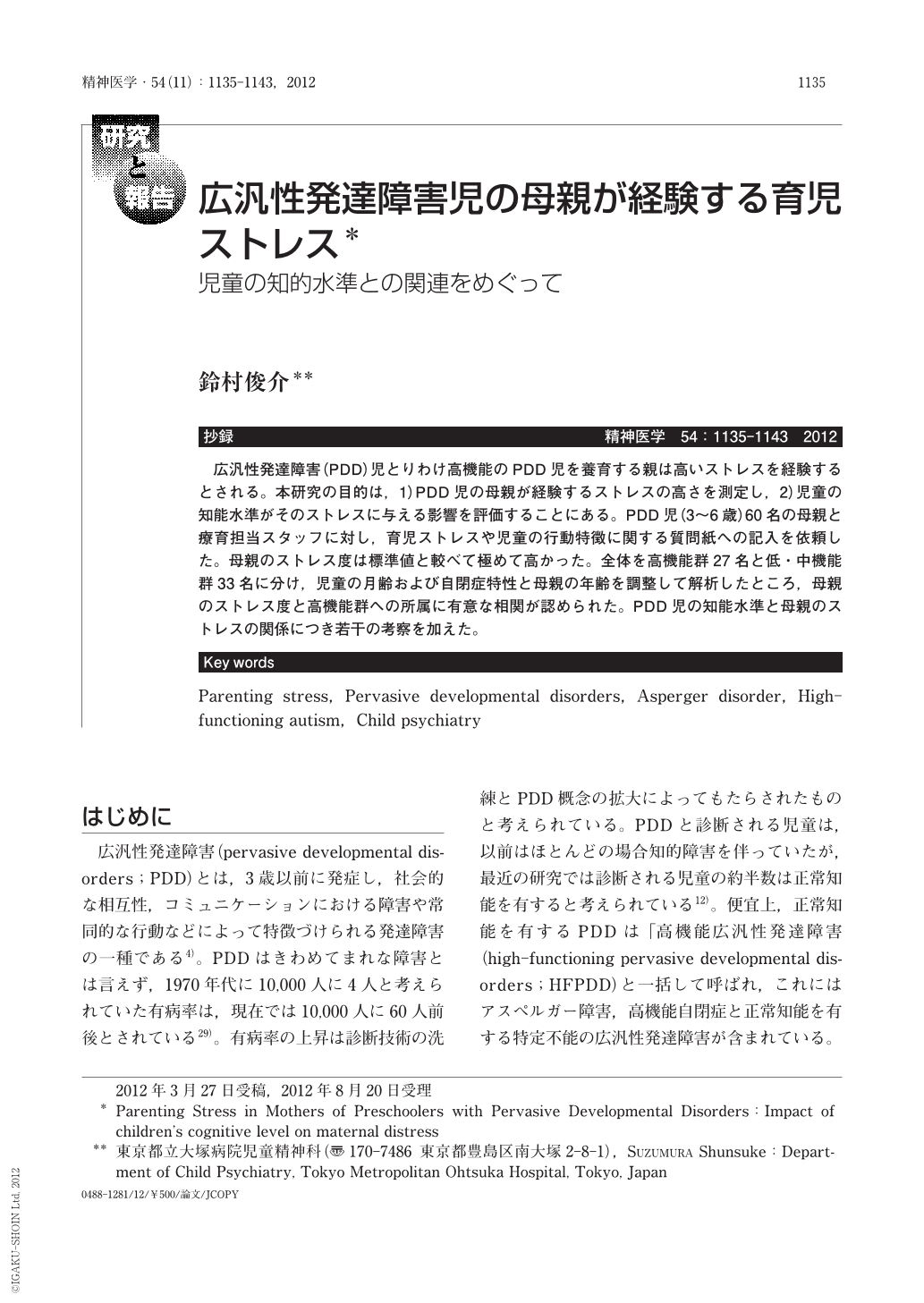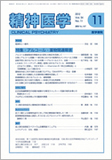Japanese
English
- 有料閲覧
- Abstract 文献概要
- 1ページ目 Look Inside
- 参考文献 Reference
抄録
広汎性発達障害(PDD)児とりわけ高機能のPDD児を養育する親は高いストレスを経験するとされる。本研究の目的は,1)PDD児の母親が経験するストレスの高さを測定し,2)児童の知能水準がそのストレスに与える影響を評価することにある。PDD児(3~6歳)60名の母親と療育担当スタッフに対し,育児ストレスや児童の行動特徴に関する質問紙への記入を依頼した。母親のストレス度は標準値と較べて極めて高かった。全体を高機能群27名と低・中機能群33名に分け,児童の月齢および自閉症特性と母親の年齢を調整して解析したところ,母親のストレス度と高機能群への所属に有意な相関が認められた。PDD児の知能水準と母親のストレスの関係につき若干の考察を加えた。
Past research has shown that mothers of children with pervasive developmental disorders (PDD), especially those who also have normal intelligence, are at increased risk for psychological distress. The aims of this study were 1) to assess the level of parenting stress in mothers of preschoolers with PDD and 2) to investigate the impact of the cognitive level of chidren with PDD on maternal stress. Sixty mothers of 3-6-year-old children with PDD and the day care staff in charge of their training were asked to fill in questionnaires the parenting stress and the behavioral characteristics of the children. The mothers were found to have strikingly higher than average amounts of parenting stress. For statistical analysis, the author split the 60 mother-child pairs into two groups in terms of the children's intelligence level:high functioning and low-moderate functioning. After controlling for the children's age, antistic traits, and maternal age, significant correlations were found between maternal stress and high-functioning. The relationship between the cognitive level of children with PDD and maternal psychological well-being is discussed.

Copyright © 2012, Igaku-Shoin Ltd. All rights reserved.


